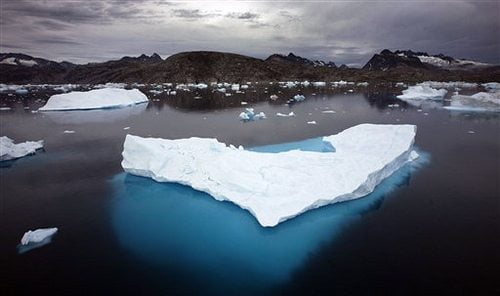

Environment
Melting Arctic linked to European weather extremes
Extreme summer weather conditions such as heatwaves and downpours in Europe and the US may be linked to record declines in Arctic sea ice, according to a new study.
The research, published in the journal Nature Climate Change analysed satellite tracking of sea ice, snow cover and weather patterns since 1979 and found a correlation.
The study’s authors suggest that the thawing of the Arctic slowed the jet stream – the river of air that circles the Northern Hemisphere – providing more time for extreme weather incidents to develop in lower latitudes.
“As the high latitudes warm faster than the midlatitudes because of amplifying effects of melting ice, the west-to-east jet-stream wind is weakened,” explained Quihong Tang of the Institute of Geographic Sciences and Natural Resources Research in Beijing in an interview with LiveScience.
“Consequently, the atmospheric circulation change tends to favour more persistent weather systems and a higher likelihood of summer weather extremes.”
The scientists say that the heatwave experienced by Russia in 2010, the droughts in the US and China in 2011 and 2012, or the summer flooding in Britain in 2012 may be examples of this trend.
However, the authors of the study stress that such a cause and effect relationship cannot be proven by their research. Also writing in Nature Climate Change, James Overland, of the National Oceanic and Atmospheric Association’s Pacific Marine Environmental Laboratory, though not involved in the study, stressed the need for caution.
“There is insufficient data to formally resolve the debate on whether these events are purely random or if their occurrence is enhanced by Arctic changes,” he said.
Ice coverage in the Arctic reached a record low in 2012 of 1.32m square miles, an 18% decrease from the previous record low measured in 2007.
A study published in August suggested that the Arctic could be ‘ice free’ by 2054, due to global warming.
Further reading:
US steps up military strategy in ‘diminishing’ Arctic region
‘Last’ Arctic region succumbing to global warming
Arctic temperatures at 44,000-year high
Arctic ice-free summers could be only a ‘few decades’ away
Arctic sea ice recovers from 2012 record low, but long-term melting trend continues


 Features11 months ago
Features11 months agoEco-Friendly Cryptocurrencies: Sustainable Investment Choices

 Energy11 months ago
Energy11 months agoThe Growing Role of Solar Panels in Ireland’s Energy Future

 Energy10 months ago
Energy10 months agoGrowth of Solar Power in Dublin: A Sustainable Revolution

 Energy10 months ago
Energy10 months agoRenewable Energy Adoption Can Combat Climate Change


























